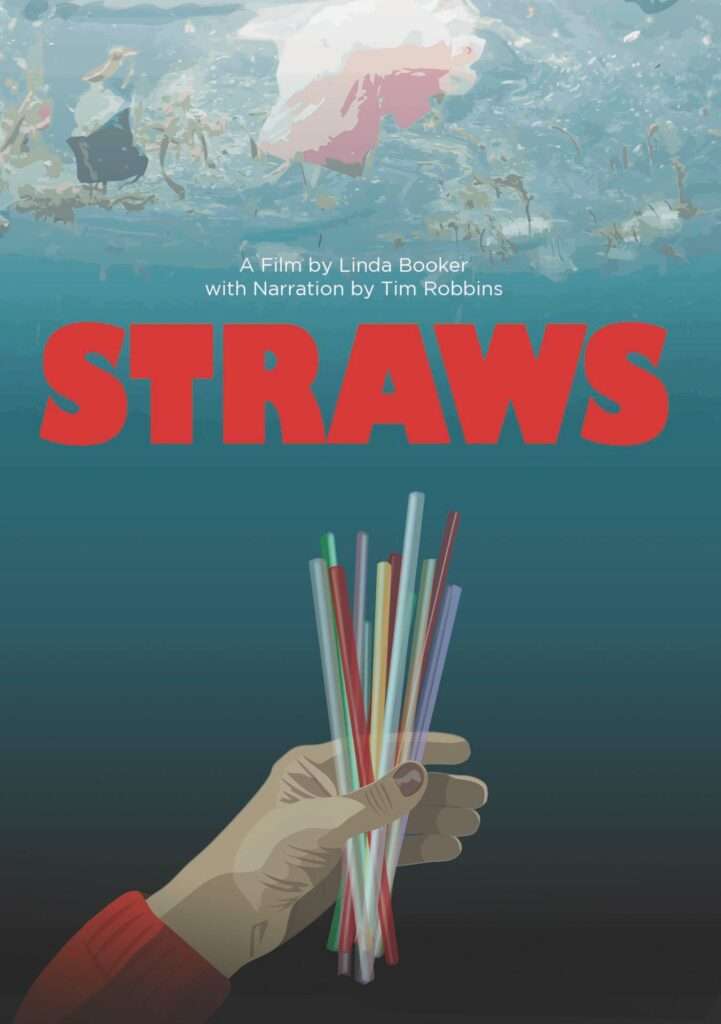The film and television industry banned tobacco use for principal characters in the early 2000s. Could single-use plastics be next? A new initiative from the Plastic Pollution Coalition and actor Ed Begley Jr. is poised to do just that.
Modeling itself after the Bechdel-Wallace Test used to measure female representation in media, the new Begley-Cohen Test is aimed at curbing single-use plastic in film and television.
If the next feature film or television series you watch doesn’t show its stars sipping on straws or drinking from plastic water bottles, it may be because of The Begley-Cohen Test, a new initiative working to remove single-use plastics from both in front of and behind the camera of major film and television productions.
The initiative is named after the actor and environmentalist Ed Begley Jr. and Dianna Cohen, the co-founder and CEO of the Plastic Pollution Coalition; the two have worked together to Flip the Script on Plastics, an initiative designed to help the entertainment industry model real solutions to the plastic pollution crisis.
In addition to founding the Plastic Pollution Coalition, Cohen is a visual artist who has worked with plastic as a means to spread awareness about its pervasiveness.
The Begley-Cohen Test
Like studios phased out tobacco from production in recent years because of its health risks, The Begley-Cohen test is working to help the industry recognize the similarities and reasons to limit single-use plastic, too. It’s also leveraging the recent success of equity and representation efforts like the Bechdel-Wallace Test to draw attention to the single-use plastic issue.
A film or television show passes the Begley-Cohen Test by satisfying two criteria: First, no single-use plastics appear on screen—this can mean either the production takes place during a time before plastic, or the production sees modern or futuristic characters use plastic-free options including refillable and reusable products. The second way a production passes the test is if single-use plastic does appear on screen, but is portrayed or discussed as problematic and disposed of properly.
“With The Begley-Cohen Test, we are providing a tool for audiences and content creators to recognize, imagine, create, and implement a world without plastic pollution,” Cohen said in a statement.
The Begley-Cohen Test is a simple way to gauge if our favorite shows are portraying the world we need to create, Begley Jr. said.
“What we see is what we do, and the entertainment industry can help audiences shift away from our toxic throwaway culture,” he said. “It is an honor to have my name attached to this important tool to help Flip the Script on Plastics in Hollywood.”
“While there are many environmental heroes in the entertainment industry today, there is one name in Hollywood that is synonymous with environmental protection and that is Ed Begley Jr.,” the Plastic Pollution Coalition said. The actor was recognized with an Environmental Media Awards Lifetime Achievement Award last year.
Begley Jr. has been an outspoken advocate for environmental issues and a longtime supporter of the Plastic Pollution Coalition since its launch in 2009.
Single-use plastic in entertainment
Single-use plastic is a leading cause of ocean pollution and a key contributor to climate change. According to EarthDay.org, humans use more than 1.2 million plastic bottles every minute—enough to equal the weight of every person on the planet. More than half-a-billion drinking straws are used in the U.S. every day, and more than 500 billion plastic cups are used around the world every year. Despite campaigns to encourage recycling, the vast majority—more than 90 percent—of single-use plastic is not recycled.
Data commissioned by Plastic Pollution Coalition with support from the Break Free From Plastic movement and Plastic Solutions Fund released last year by the the USC Annenberg Norman Lear Center, looked at 32 popular television shows from the 2019-2020 season.

The report—the first-ever analysis of the portrayal and prevalence of single-use plastics and reusable alternatives in popular scripted television shows—found single-use plastic is widespread in the film and television industry.
The report found an average of 28 single-use plastics appeared in the surveyed scripted television episodes, with every single episode seeing at least one single-use plastic item.
But despite the prevalence of single-use plastic on-screen, 93 percent of items were not properly disposed of in the stories, a problem the Coalition says contributes to the false narrative of “magically disappearing trash.” That narrative was also reinforced by showing littering in the episodes, which happened to 80 percent of single-use plastic on-screen. Only 13 percent of the episodes surveyed showed any dialogue about plastic or related issues.
The Plastic Pollution Coalition says the Begley-Cohen Test is a jumping-off point for content creators to help them intentionally remove single-use plastics from storylines and sets and address plastic’s presence in meaningful and responsible ways.
“Together we are shifting popular culture to change the perception of toxic throwaway plastic as being normal,” Cohen said, “because it’s not.”


